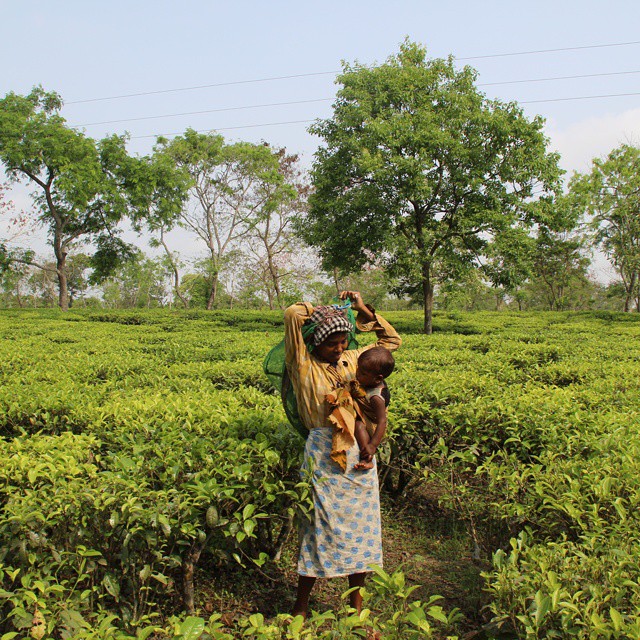This article was published more than 5 years ago.
This article is part of a series featuring inspiring stories of local action #fromthefrontlines of COVID-19 in the Global South. For more, visit our COVID-19 page and follow us on Facebook and Twitter.
As India enters its second month in lockdown, local leaders are mobilizing to address dire conditions that have endangered hundreds of thousands of tea plantation workers in the northeastern state of Assam.
When the Indian government announced a nation-wide lockdown in March, tea plantations across the country halted operations just as plucking season was due to begin, resulting in enormous financial losses for one of India’s most visible industries. Despite an order by the Indian government in March to not terminate workers or reduce wages during the pandemic, plantation owners have failed to pay hundreds of thousands of laborers since the shutdown began.
But some of Assam’s vast tea gardens were recently reopened when the Indian government announced that tea plantations could begin operating at 50 percent of their typical capacity. Facing the prospect of enduring a looming hunger crisis and economic downturn without wages, local laborers had little choice but to return to work.

Community groups operating in Assam warn that sending tea plantation workers back at work makes them particularly vulnerable to the novel coronavirus. A 2016 study reported a clear link between tea workers’ dismal living conditions and their susceptibility to infectious disease. Resuming operations will put hundreds of thousands of people at risk.
Three organizations supported by the Fund—All Adivasi Women Association of Assam (AAWAA), Nazdeek, and Pajhra—are working with a network of civil society partners to improve protections for tea plantation workers, ensure they have access to government assistance programs or other forms of relief, and provide much-needed rations as a food crisis threatens to subsume the region.
The decision to reopen plantations, activists say, will especially impact women, who make up 60 percent of the labor force on Assam’s tea gardens.
In a statement, AAWAA said “we have no reason to believe that any extra care will be taken for women being made to work during the COVID-19 epidemic.” The group has called on the Indian government and the government of Assam to enforce the lockdown on tea plantations and provide increased access to testing and healthcare.
While the Indian government announced a $24 billion relief package for low-income people, representatives from Pajhra say that many tea plantation workers are ineligible to receive this aid without necessary documentation like ration cards and voter identification cards—a frustrating impediment that stems directly from the state government’s failure to issue the required documents. Concerningly, community leaders on the ground also report that local representatives of BJP, India’s ruling right-wing party, are excluding non-Hindus from receiving aid.
Pajhra, Nazdeek, and AAWAA, along with several network partners, are working to identify those in Assam who are not eligible for government aid and need immediate relief. So far, they have provided around 1,000 families with dry ration supplies, including rice, potatoes, salt, and soap. Many more families, however, are in dire need of assistance.
As this pandemic imperils those with the fewest resources, protecting their fundamental rights is more vital than ever. The Fund is proud to support organizations like AAWAA, Pajhra, and Nazdeek, who are fighting for the rights of workers and offering critical aid to the most marginalized and vulnerable members of their communities.


